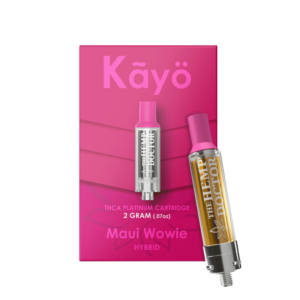The cannabis industry is growing and thriving, so it’s not a surprise more and more entrepreneurs are now building their cannabis businesses or are thinking about launching one.
Whether you are planning on building your cannabis store or are enthusiastically watching the industry expand, you probably wonder what some of the biggest challenges for the cannabis industry in 2023 are.
Legality
The legal status of cannabis varies from nation to nation and state to state and can become a challenge for those living in areas where recreational cannabis use isn’t allowed. While hemp is legal on the federal level, cannabis with high THC levels, famously known as marijuana, is not accessible to all; thus, selling marijuana-derived products isn’t an option for some cannabis retailers.
The cannabis industry has a long and complicated history that spans centuries, but it has undergone significant transformations in recent decades. Cannabinoids, or chemical compounds found in cannabis, include tetrahydrocannabinol (THC) and cannabidiol (CBD). THC is the psychoactive cannabinoid responsible for the “high” associated with cannabis use – hence the reason for the legal status of cannabis in many states.
While the industry is expanding rapidly, compliance with regulations, supply chain management, and stigma are among the industry’s obstacles. Let’s look at a few:
Complications posed by law and regulations
The plethora of state and federal laws and regulations is one of the biggest obstacles facing the cannabis industry.
Cannabis is still illegal under federal laws in the United States, even though some states have legalized it in some form – allowing possession of small amounts no longer punishable by law, decriminalizing the practice. With that said, ultimately, the federal government is in charge of enforcing federal drug laws, which may occasionally conflict with cannabis laws in individual states.
As of February 2023, the recreational use of cannabis will be/is permitted in 20 states and the District of Columbia, while medical use of cannabis will be allowed in 39 states and the District of Columbia. However, it is essential to remember that the laws governing possession limits, consumption methods, and other aspects of cannabis use can differ significantly from state to state. In addition, cannabis remains illegal on a federal level in the United States, despite recent progress toward its legalization. It’s also essential to keep up with the legal landscape in your area because cannabis laws are subject to change. That said, estimates are that the global cannabis market could be worth $90,4 billion by 2026.
Under the Controlled Substances Act, cannabis remains a Schedule I drug, making it illegal on a federal level in the United States. However, in recent years, there have been steps toward legalization at the federal level, such as the 2018 Farm Bill, which made hemp legal at the national level. In addition, instructions have been given to some federal agencies to deprioritize the enforcement of cannabis laws in states where they have been legalized.
Problems with the supply chain
Because of the state and federal laws, finding high-quality cannabis and navigating the complex regulatory environment surrounding packaging, labeling, and transportation presents significant hurdles for the cannabis industry. The following are some of the supply chain-related issues the industry faces:
- Finding high-quality cannabis strains: Cannabis is a complicated plant that needs to be carefully grown, harvested, and processed to make products of high quality. However, it can be challenging to locate trustworthy sources of high-quality cannabis, particularly for smaller producers who may lack the resources to set up their own grow operations.
- Adhering to regulations: Stringent regulations govern everything from testing and transportation to packaging and labeling in the cannabis industry. It can be time-consuming and costly to ensure that products comply with these regulations, and failing to do so could result in license suspension or even fines.
- Inaccessibility to financial services and banking: Businesses may also find it challenging to manage cash and pay suppliers if they cannot access banking services. Traditional banking and financial services are still unavailable to many cannabis businesses, making controlling cash flow and paying suppliers challenging. Companies may be forced to rely on cash transactions or find alternative payment methods, which can present logistical challenges for the supply chain.
- Logistics and Shipping: Cannabis products can be challenging to move from the grower to the processor to the retailer, especially since regulations governing product tracking and tracing must be followed. Companies specializing in cannabis transportation and logistics can help with these problems, but restrictions may limit their reach.
- Labeling and packaging: In order to comply with regulations, which can be complicated and vary from state to state, cannabis products must be packaged and labeled. Product labeling and packaging can help ensure safety and compliance but can also result in additional costs and logistical difficulties.
Imagery and stigma
Even though public perceptions of cannabis have improved, the industry is still stigmatized. Due to this, businesses may have difficulty attracting investors, clients, and talented employees.
Safety and quality control issues
Besides being extremely costly, the industry must ensure that cannabis products are safe and high-quality, but testing and quality control remain problematic. This includes problems with laboratory standards, the precision of testing equipment, and the possibility of pesticides and other contaminants getting into the product.
Consolidation and competition
As the cannabis industry develops, larger businesses with more resources are entering the market, making it potentially challenging for smaller firms to compete. In addition, there may be a tendency toward consolidation, in which larger companies acquire smaller ones to increase their market share.
There’s hope for the future!
According to a report by Fortune Business Insight, “The global cannabis market size was USD 20.47 billion in 2020 and is projected to grow from USD 28.266 billion in 2021 to USD 197.74 billion in 2028 at a CAGR of 32.04% in the 2021-2028 period.”
While businesses in the industry have been facing numerous challenges, some of them may soon become history. The cannabis industry is indeed expanding rapidly. The growing efforts to legalize cannabis, the ever-increasing social acceptance of cannabis, the demand, and the potential therapeutic benefits of cannabis products have all contributed to the market for legal cannabis expansion in recent years. As more nations legalize cannabis for medical or recreational purposes, the industry is anticipated to expand.
Starting a cannabis business can be tough, and finding a reliable wholesale supplier with premier-quality products can be challenging. With the highest level manufacturing processes, US-grown hemp, and third-party laboratory testing, The Hemp Doctor products will surely bring your store and its customers to a new level. We offer various cannabis products derived from hemp – a federally legal cannabis plant millions of consumers use daily.







